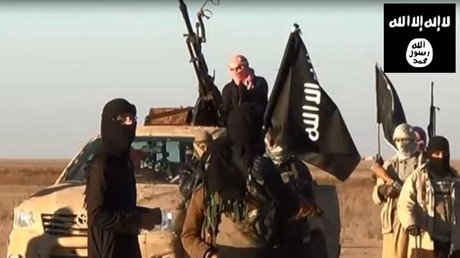Bomb attacks target mosque, conference hall in Dresden, Germany
Two improvised explosive devices have gone off in the eastern German city of Dresden, targeting a mosque and an international conference center. No one was injured, according to police, although the mosque was severely damaged.
Both explosions took place on Monday evening. Police first responded to an emergency call informing them of an explosion at a mosque on Hühndorfer Street.
Pictures published by Fatih Mosque #Dresden facebook page after bomb attack Monday evening. pic.twitter.com/fxtycYQVCs
— Blazing Fury (@FuryBlazing) September 27, 2016
The authorities said that the imam and his family had been inside the mosque at the time of the detonation, but had managed to escape unharmed. The door of the mosque was pushed inward by the force of the blast and the building was heavily covered in soot.
Bilder vom Sprengstoffanschlag auf eine Moschee in #Dresden Cotta gestern Nacht. pic.twitter.com/UbTsR92n5b
— Streetphoto (@streetphotoSE) September 27, 2016
The second explosion took place shortly afterwards, in front of Dresden’s International Congress Center on Devrientstrasse. The bar of a nearby hotel was evacuated.
More than 50 police officers were deployed to the sites of the blasts, including the crime scene group of the State Criminal Office of Saxony. Authorities say they found parts of hand-crafted explosive devices at both locations.
Although the investigation is ongoing, police believe the motive behind the blasts was xenophobic.
“Both attacks are related in timing. Although there is no claim of responsibility so far, we must go on the basis that the motive was xenophobic,” Horst Kretzschmar, head of Dresden police, said in a statement.
Kretzschmar also announced during a press-conference on Tuesday that police in Dresden boosted security at Muslim sites. This includes three mosques, a house of prayer, and a cultural center.
Michael Opperskalski, journalist and expert on international affairs, told RT he also sees a xenophobic background to the attacks in Dresden, noting that the nationalist sentiment gradually gaining popularity in Germany is a political threat to the country.
“We are talking about a political threat here. I do not think that the [right-wing Alternative for Germany party/AfD] will start an uprising or something like this, for various reasons they are not going to do that. But under the umbrella of the AfD you have these kinds of hard-liners from different angles, different groups, different tendencies, they’re hiding behind the AfD and quite successfully, and they are a threat.
“As you see with the bomb attacks, although they were still homemade and not very professionally [made], these guys are learning and this might be really a terrorist organization in the future,” Opperskalski predicted.
Security measures have now been increased at all of Dresden’s mosques and other Muslim institutions.
Kretzschmar also noted that police suspect a connection between the timing of the attacks and the upcoming celebration of the 26th anniversary of the unification of East and West Germany to be held in Dresden next Monday.
“The events will have an impact on our ongoing preparations for [the celebrations]. We will now operate in an emergency mode,” he added.
The ceremonies will be attended by Chancellor Angela Merkel and President Joachim Gauck.
Germany was the target of several violent attacks this summer, with three of them committed by migrants. In two cases the assailants pledged allegiance to Islamic State (IS, formerly ISIS/ISIL).
On July 24, a 27-year-old Syrian refugee, who had pledged allegiance to the terrorist group, detonated a bomb in the Bavarian town of Ansbach, killing himself and injuring 15 people.
On 18 July, a 17-year-old refugee armed with an ax and knife injured five people when he attacked passengers on a train near the city of Wuerzburg, also in Bavaria, before being shot by police. The attack was later claimed by IS.
READ MORE: Surge in anti-migrant violence in Eastern Germany ‘threatens economy’ – govt report
Following the attacks, German Interior Minister Thomas de Maiziere warned that over 520 more people in the country are capable of committing “unexpected” and potentially “high-profile” terrorist attacks, stressing that the terrorist threat in Germany is “very real.”
Last week, German police special forces (SEK) arrested a 16-year-old refugee from Syria in Cologne after allegations he had become radicalized and prayed for Islamic State.
Several days prior, three Syrian nationals suspected of having ties with IS were arrested after federal police raided refugee camps in northern Germany.
The terrorism threat prompted numerous attacks on refugees in the country, including arsons and attacks on asylum centers. In one of the most recent incidents of the kind, 40 people, including eight children, were pepper-sprayed in a refugee facility by an employee of a building company working at the site of the shelter.














